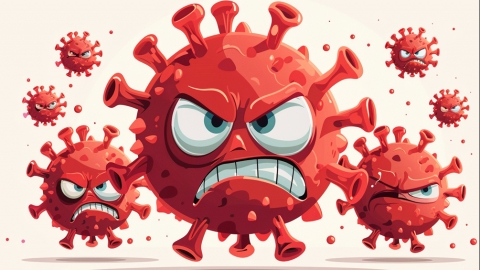What causes persistent diarrhea after contracting norovirus, and what should be done?
Normally, persistent diarrhea after being infected with norovirus may be caused by intestinal dysfunction, damaged intestinal mucosa, dysbiosis of intestinal flora, inflammatory complications from intestinal infection, acute gastroenteritis, and other related reasons. Patients can receive treatments under a doctor's guidance, including general care and medication therapy. If discomfort occurs, timely medical consultation is recommended. Detailed explanations are as follows:

1. Intestinal Dysfunction
After invading the intestines, norovirus interferes with normal intestinal peristalsis and digestion/absorption functions, leading to accelerated peristalsis and reduced absorption, which results in persistent diarrhea. For daily prevention, attention should be paid to food hygiene, avoiding consumption of raw, cold, or unclean food, and frequent handwashing, especially before meals and after using the toilet, to reduce the chances of viral invasion.
2. Damaged Intestinal Mucosa
Norovirus attacks the intestinal mucosal cells, causing mucosal damage and impairing the intestine's ability to absorb water and nutrients, resulting in excessive fluid loss and diarrhea. In terms of prevention, irritating foods should be avoided to protect the integrity of the intestinal mucosa.
3. Dysbiosis of Intestinal Flora
Norovirus infection may disrupt the normal balance of intestinal flora, increasing harmful bacteria while decreasing beneficial bacteria, leading to intestinal dysfunction and diarrhea. Symptoms such as bloating and indigestion may also occur. Under a doctor's guidance, patients may take medications such as Bifidobacterium Quadruple Strain Tablets, Bacillus Subtilis and Bifidobacterium Double Strain Granules, or Licheniformis Bacillus Spore Capsules to regulate the balance of intestinal flora.
4. Inflammatory Complications from Intestinal Infection
After norovirus infection, the intestine may develop inflammation, causing congestion and edema of the intestinal mucosa, further worsening diarrhea. It may be accompanied by symptoms such as abdominal pain and fever. Treatment may include, under a doctor's guidance, medications like Smectite Powder, Enteritis Relief Tablets, or Compound Berberine Tablets to alleviate diarrhea symptoms.
5. Acute Gastroenteritis
Acute gastroenteritis is mainly caused by food poisoning or viral infection. When gastrointestinal mucosa becomes irritated, gastrointestinal motility increases, leading to diarrhea. Symptoms such as nausea, vomiting, abdominal pain, and fever may also occur. Patients are advised to use medications such as Enteritis Relief Tablets, Lactobacillus Tablets, or Amoxicillin Capsules under a doctor's guidance for treatment.
Daily recommendations include choosing fresh and clean ingredients, avoiding spoiled, expired, or unknown-source foods. Food should be thoroughly cooked, especially high-risk items such as seafood and meat. Additionally, raw and cooked foods should be kept separate to prevent cross-contamination.






